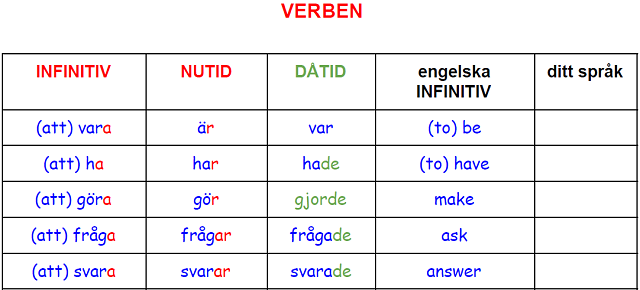Language is full of fascinating words—some widely used, others rare and poetic. One such term is “översägt.” While it might not appear in standard dictionaries or everyday conversation, it sparks curiosity among Swedish learners, linguists, and readers of Nordic literature. So what does it really mean? Where might it come from? And how should you use or interpret it?
This article offers a comprehensive breakdown of the word “översägt,” including its origin, linguistic structure, possible meanings, modern relevance, and examples. Whether you’re a student of the Swedish language or a linguist exploring compound verbs, this is your ultimate guide to “översägt.”
🔍 What is “Översägt”?
The word “översägt” appears to be a compound past participle in Swedish. Let’s break it down:
- Över = “over” or “too much”
- Sägt = “said” (past participle of säga, meaning “to say”)
Putting the parts together, “översägt” could literally mean:
“Over-said”, or “said too much”
In English, this would be closest to:
- Overstated
- Repeated unnecessarily
- Exaggerated through too many words
However, this word is not commonly found in standard Swedish dictionaries, which makes it rare and intriguing. It may be a creative, dialectal, poetic, or constructed form, rather than a widely accepted term.
📚 Is “Översägt” a Real Swedish Word?

Yes and no. Here’s what we mean:
✅ Grammatically Possible
Swedish allows for flexible word formation, especially using prefixes like över- (over, beyond). So, creating översägt from säga (to say) makes grammatical sense.
❌ Not Officially Recognized
The word does not appear in Svenska Akademiens Ordlista (SAOL) or major dictionaries. It’s likely:
- Dialect-based (regional usage)
- A neologism (a newly invented word)
- A poetic or literary term
- A mistaken or archaic form
Yet even so, such “nonstandard” words can be linguistically valid, especially when context makes the meaning clear.
🌐 Where Might “Översägt” Appear?
Although rare, you might encounter “översägt” in:
1. Old Scandinavian Texts
Medieval or early modern Swedish often included creative compound words, and “översägt” may appear in older writings.
2. Modern Poetry or Lyrics
Swedish poets or songwriters may use “översägt” for dramatic effect—to convey repetition, emotional overwhelm, or communication fatigue.
3. Dialectal Speech
Some parts of Sweden, especially in rural or northern areas, might preserve words that differ from standard Swedish.
4. Language Learners’ Translations
Learners or AI-powered translation tools (like Google Translate) might accidentally generate “översägt” as a literal translation of “overstated” or “too much said.”
✨ Possible Interpretations of “Översägt”
Depending on the context, “översägt” can take on different shades of meaning:
| Swedish Interpretation | English Equivalent | Explanation |
| Överdrivet sagt | Overstated | An exaggeration through words |
| Sagt för mycket | Said too much | Talking beyond the necessary or acceptable limit |
| Upprepat för ofta | Repeated too often | Mentioned too many times, annoyingly |
| Onödigt uttryckt | Unnecessarily expressed | Not worth mentioning; excessive or redundant speech |
🧠 How Compound Verbs Work in Swedish

One of the beauties of Swedish is its ability to create new words by combining existing ones. These are known as compound words.
- Säga (to say) → Sägt (said – past participle)
- Över (over, too much, beyond)
Together → Översägt (over + said)
This is structurally similar to:
- Överdriven = Over + driven = Exaggerated
- Överbearbetad = Over + processed = Overprocessed
So while not official, “översägt” fits into the Swedish system of building new expressions.
✍️ Example Sentences (Hypothetical)
Here are some illustrative sentences using “översägt”:
“Det var kanske lite översägt att kalla det en katastrof.”
Translation: “It was perhaps a bit overstated to call it a disaster.”
“Han blev trött på ämnet – det hade redan varit översägt i mötet.”
Translation: “He got tired of the topic—it had already been talked about too much in the meeting.”
“Den delen av berättelsen kändes översägt, som om författaren inte kunde släppa det.”
Translation: “That part of the story felt overstated, as if the author couldn’t let it go.”
📘 Related Words and Their Usage
| Swedish Word | English Equivalent | Usage |
| Säga | To say | Base verb |
| Sade | Said (past tense) | Used in narrative past |
| Sägt | Said (past participle) | Used with “har” (has/have) |
| Överdriven | Exaggerated | Widely used adjective |
| Uttalad | Pronounced, stated | Formal declaration |
| Sagts för mycket | Said too much | Common phrase in speech |
💬 FAQs About “Översägt”
Q1: Is “översägt” used in everyday Swedish?
No, it is rarely used in daily speech. Most people would use “överdriven” or “sagts för mycket” instead.
Q2: Can I use “översägt” in writing?
Yes, especially in poetic, literary, or experimental writing, but be aware that readers might find it unfamiliar.
Q3: What’s a better alternative word?
For everyday use, try:
- Överdriven (exaggerated)
- Sagts för mycket (said too much)
- Upprepat (repeated)
Q4: Is “översägt” recognized by Swedish dictionaries?
Not by SAOL or other major sources. It may be used creatively or appear in older or unofficial texts.
Q5: Why do translators sometimes suggest it?
Automated translation tools may combine valid roots (över + sägt) without checking whether the compound is natural in Swedish.
📌 Final Thoughts: Why “Översägt” Is Worth Understanding
Even though it’s not part of standard Swedish vocabulary, “översägt” reflects the dynamic, expressive nature of Scandinavian languages. It shows how new words can be formed, even if they don’t make it into the dictionary. Whether you’re a language learner, a writer, or a cultural explorer, understanding words like “översägt” gives you a richer connection to how people express nuance, emotion, and tone. So next time you see a word you don’t know, dig deeper—it might tell you more than just its literal meaning.







